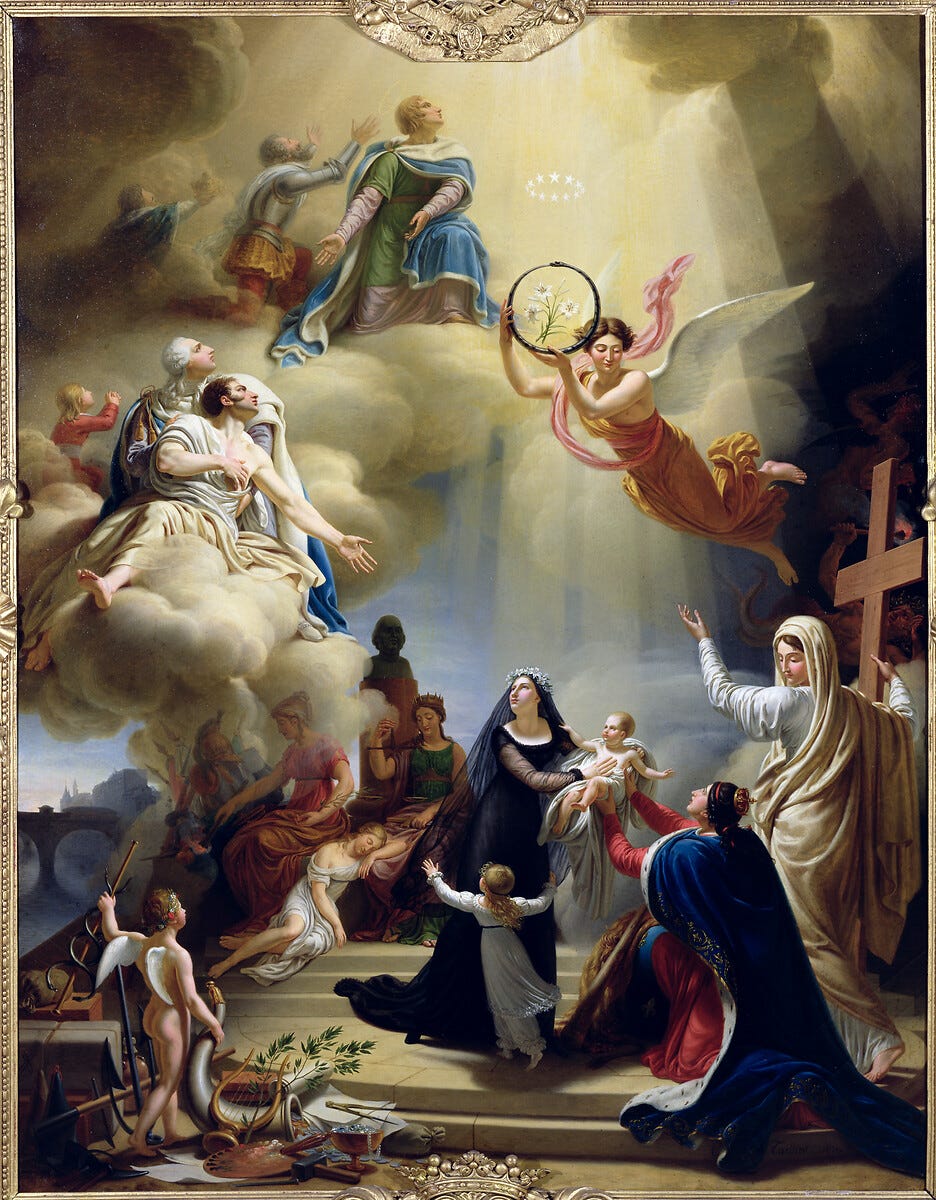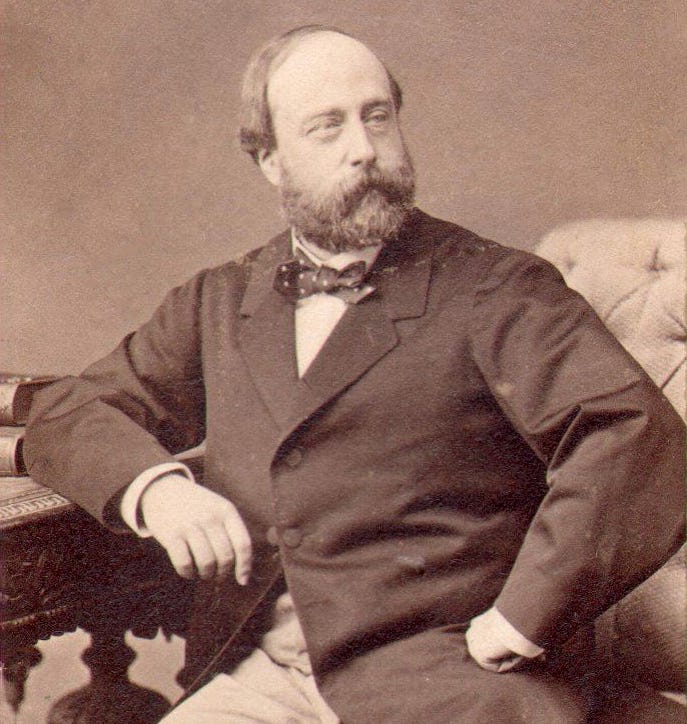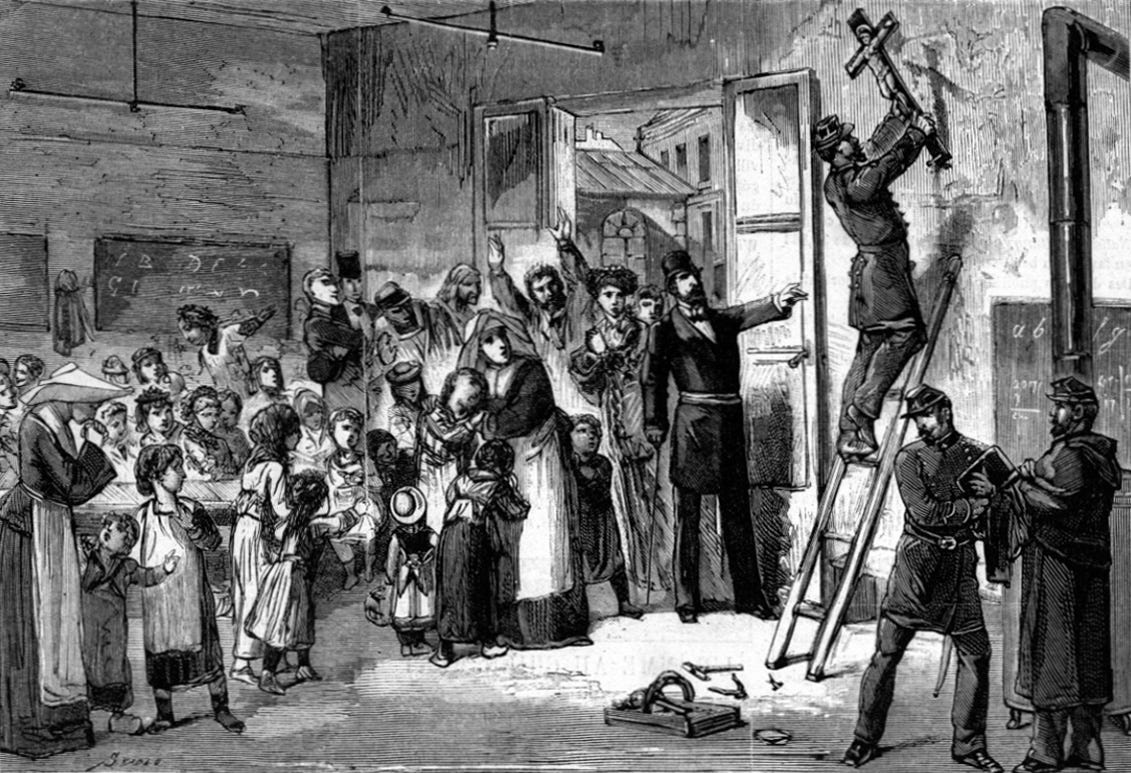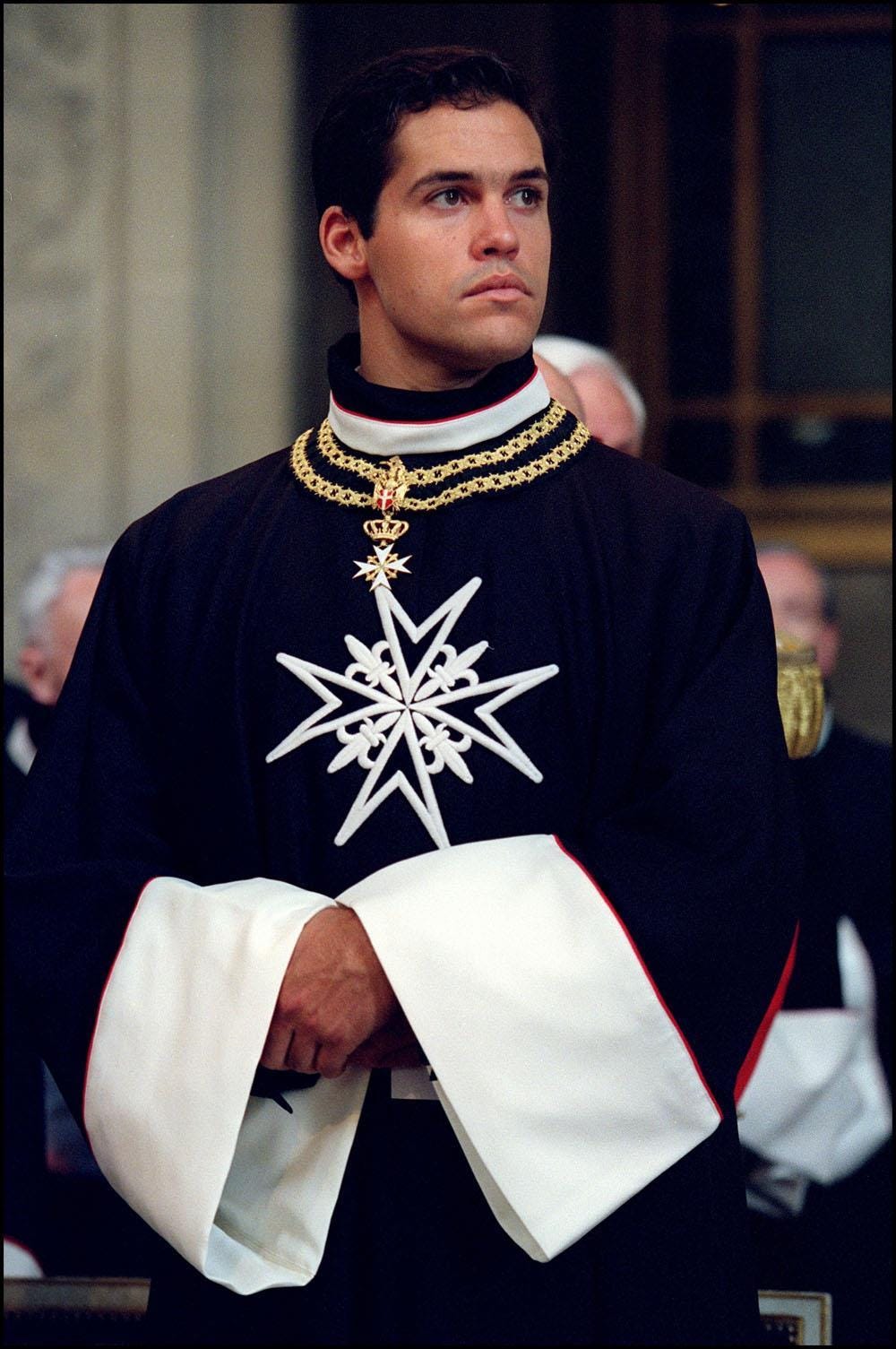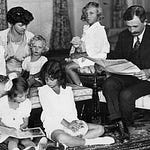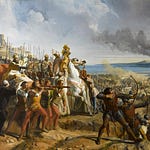That much of the Western world is undergoing a severe crisis of confidence is a fact so obvious as to be a cliché today. Seldom does a week go by without scandal or shame further undermining the legitimacy of governments from Oceania to the Americas.
In recent months, France in particular has come to the fore, with the Fifth Republic in a state of absolute constitutional paralysis, and a record 96% of surveyed citizens “dissatisfied or angry about the state of the country”. The shameful break-in at the Louvre on the 9th October, and theft of several of the Crown Jewels in broad daylight, aptly symbolised the depth of the abyss into which France was long ago thrust.
Yet France was not supposed to be a Republic. It exists because one man in 1873 placed honour above ambition, and refused the offer of the French Crown.
Since the most commonly remembered reason why Henri, Comte de Chambord, made this fateful decision was his rejection of the tricolore, his position is often maligned as a trivial squabble over the nation’s flag. In truth, the convictions of the rightful heir of the House of Bourbon, who was prepared from birth for kingship, struck directly at the most fundamental pillars which have held up the Western world ever since.
Today, we consider why Henry V of France was never crowned, and what it can reveal about how and when to say that most difficult of words — ‘No’…
EDITOR’S NOTE: We’re serious about helping you learn from the great men of history, which is why we’re now adding long-form videos to accompany each Tuesday email.
In each video, James shares primary texts, paintings, maps, and more to take you on an audio-visual tour through history and bring each character we study to life. Free previews are available to all readers, with full access reserved for paid subscribers.
To gain immediate access to this video plus our entire back-catalog of over 130 articles, videos, and podcasts, click below to upgrade your membership:
The God Given King
Timestamp: 00:02:30
The summary regicide of Louis XVI in 1793, and the brutal end inflicted by the revolutionary junta upon his ten year old son Louis Charles soon after, dealt a severe blow to the Royal House of France.
Through the turmoil of the Revolution, and total war in Europe that it spawned, the hope of the monarchy endured in the slain king’s two surviving yet aging brothers — Louis Stanislas, Count of Provence, and Charles Philippe, Count of Artois. Yet even when the vanquishing of Napoleon permitted the restoration of the monarchy in 1814, the crisis only swelled.
Louis Stanislas, now King Louis XVIII, had no children. The Count of Artois meanwhile had two adult sons, the Dukes of Angoulême and Berry, both approaching middle age and with no sons of their own. In the hour of its apparent triumph, therefore, the House of Bourbon was facing extinction. With the assassination of the Duke of Berry on the 13th February 1820, it seemed that all hope was lost.
Yet in an astounding reversal of fortunes, seven months later the deceased duke’s widow gave birth to a healthy son. The miracle of the House of France, the boy was christened Henry, and hailed as Dieudonné — the God Given.
It was a name that would prove to be well-chosen, though not for the reasons any would then suspect…
Three Monarchies, Three Visions
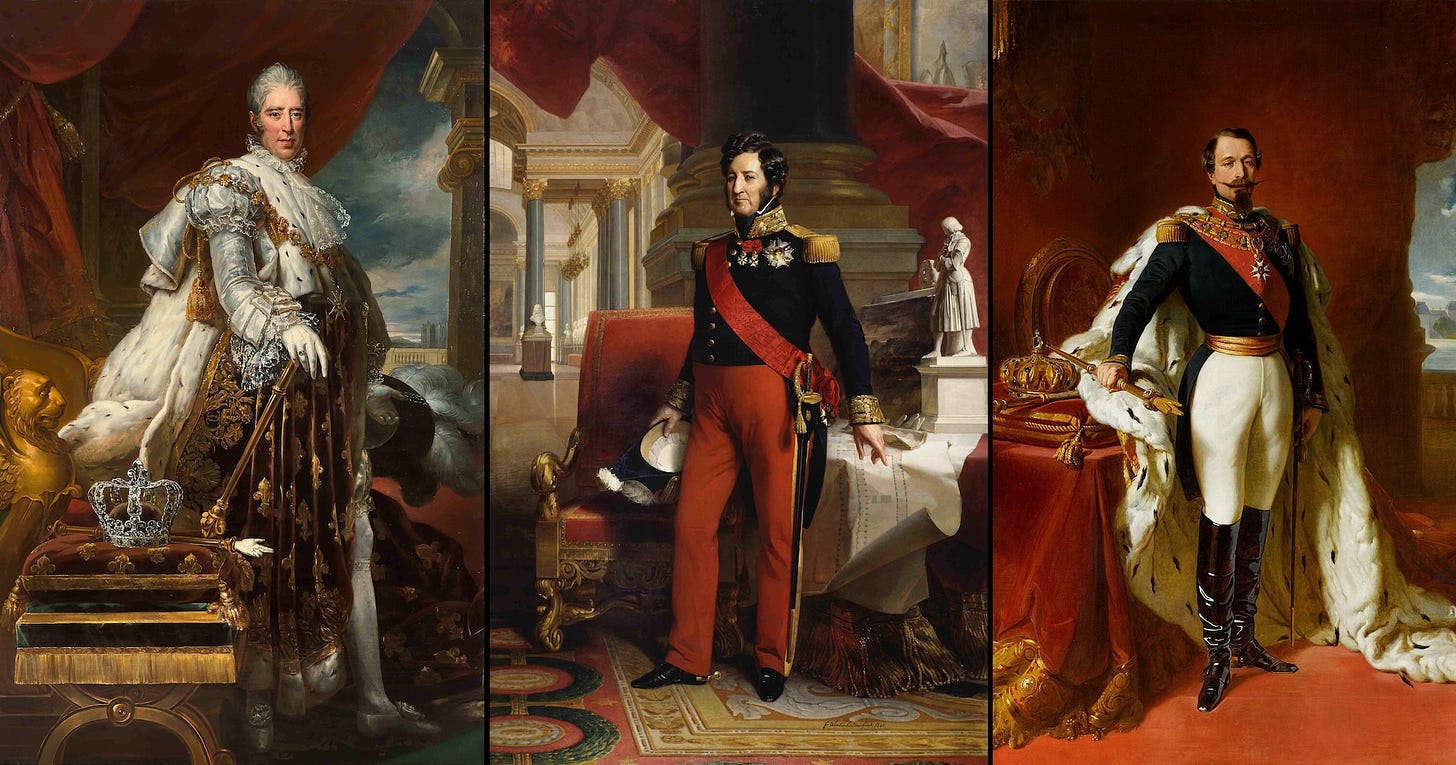
Timestamp: 00:27:25
With the death of Louis XVIII and accession of his brother, the Count of Artois, as King Charles X in 1824, the French 19th century entered its fateful war of ideology. At stake was the very character of France, encapsulated by the three monarchical dynasties — the Houses of Bourbon, Orléans and Bonaparte — which grappled both with republicanism and with each other.
Would France be a secular republic that exalted atheism, short-term thinking and factionalism, tearing up her roots and aspiring to the eternal blank new slate?
Would France re-embrace the Legitimism of the House of Bourbon, headed now by Henry Dieudonné, Count of Chambord, and a monarchy that is the Viceroyalty of Christ, the first shepherd of the kingdom’s flock, and custodian of a thousand years of faith, culture and tradition?
Would France turn to the ‘liberal monarchy’ of the House of Orléans, and attempt to tame godless revolution with parliamentary constitutionalism, under a 'hereditary presidency’?
Or would France take the path of Empire and the House of Bonaparte, of populist autocracy and temporal glory?
“Personality is Nothing, Principle is Everything”
Timestamp: 00:36:59
With the dramatic collapse of the Second Empire, defeat in the Franco-Prussian War and the eruption of the world’s first armed communist uprising in the capital, France in 1871 was on her knees.
With royalists winning a deluge of seats in the National Assembly, the government has a mandate to give France the stability she cries out for, and restore the Monarchy. In her hour of need, there is one man, God-Given, who was born to fulfil that role. Thus does the National Assembly of the Third Republic approach Henry, Count of Chambord, with the offer of the Crown.
“Frenchmen!
I am ready to do anything to aid my country in rising from its ruins, and in reassuming its rank in the world”Henry, Count of Chambord, 5th July 1871
Yet all is not as it seems, for the political classes of Paris have designs on ‘Monarchy’ that rest ill with the heir of Saint Louis. Designs that will force the divinely anointed King of France to decline the Crown placed so deceitfully before him, with the simple words:
“My personality is nothing, my principle is everything”
Henry, Count of Chambord, 27th October 1873
Where Now, France?
Timestamp: 01:12:09
Many will not know just how poisoned the chalice that the Assembly offered the Count of Chambord truly was. For the faithful of France, however, deep foreboding accompanies the sorry knowledge that the political classes have failed to restore the Monarchy.
His calling unfulfilled, Henry, the King that France needed yet had not fully deserved, departed this life on 24th August 1883, and ominous was the feeling of many:
“God’s designs are impenetrable, but it takes all the strength of faith, and all the help of grace, to bow without complaint under the catastrophe that His justice has inflicted on our unfortunate country. In this deep darkness that has fallen around us, we now see that France is irrevocably condemned to terrible consequences”
Antoine du Bourg, 1883
With its primary opponent seemingly extinguished, the Third Republic entrenched, and embarked upon the unholy mission that the First had left unfinished — the de-Christianisation of France and the atomisation of her people. Over the 1880’s and beyond, the French Republic stripped away almost every trace of Christianity in the nation, from the secularisation of marriage, the expulsion of the Church from education, healthcare and the Armed Forces to the seizure of religious structures.
In 1905, the coup de grâce came with the final rupture between the State and Christianity, establishing the state secularism of the French Republic that has governed her ever since. Misfortune, instability and the hollowing out of society which so many had warned of in the 19th century indeed came to pass in the 20th.
One need not speculate, however, what the Count of Chambord would think if he could see France today, for not only did he predict it, but his Legitimist successor and the current pretender to the French Crown, Louis de Bourbon, Duc d’Anjou, echoed Henry’s words in an extraordinary appeal to the French people made less than two weeks ago.
At the 01:30:23 mark, we read out that appeal, which contained a remarkably direct condemnation of the ‘business of politics’, true to the Legitimist ideals of his august forebears:
“The Fifth Republic, like its sisters before it, seems on the verge of collapse. Governments come and go, all alike. They apply the same methods and the same measures. Tirelessly. I note a total lack of self-examination and a lack of any real will for reform. While politics is often described as the realm of all possibilities, today in France, it has become a space of immobility, powerlessness, and incapacity”
Louis de Bourbon, Duc d’Anjou, 8th October 2025
May France indeed rise again, break the shackles of misrule, and return to the flock from which malevolent men led her astray…
A 20 minute preview of this video is free for all readers of INVICTUS. To gain access to the full video (plus our entire backlog of over 130 articles, videos, and podcasts) click below to upgrade your membership:


